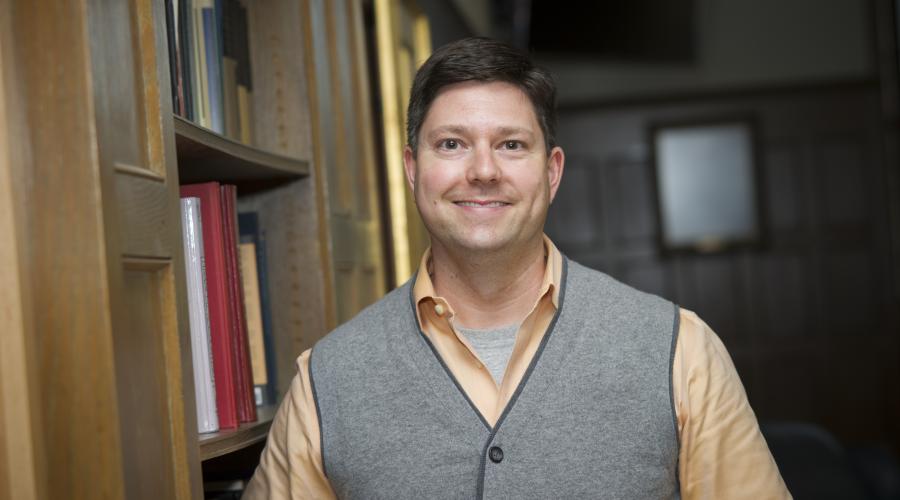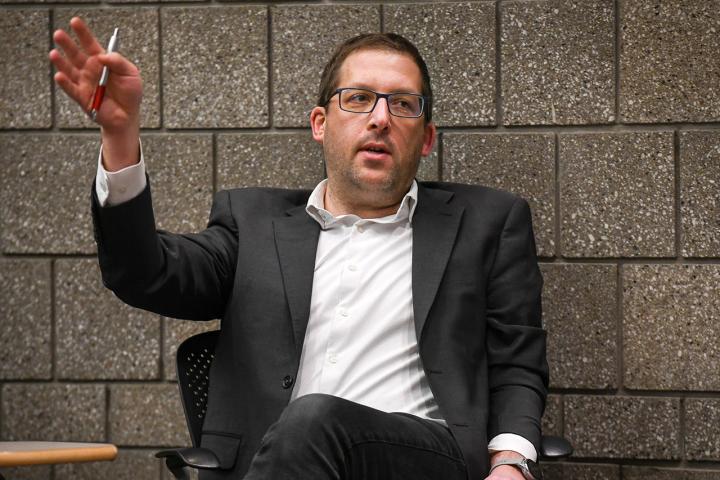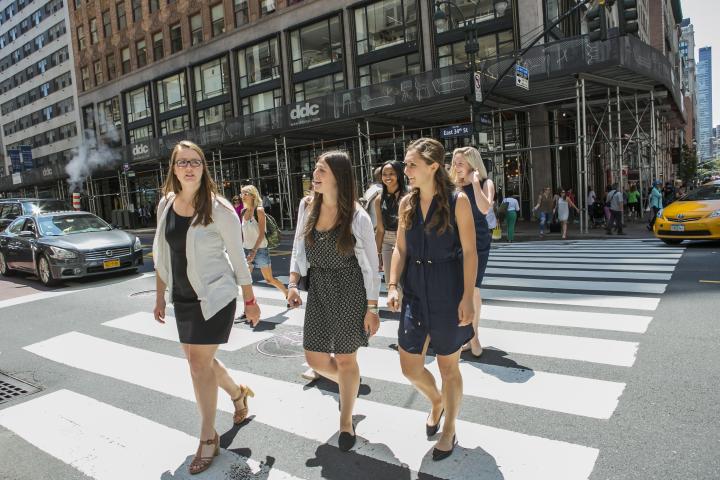
Faculty Spotlight: Adam Seth Litwin, Associate Professor, Global Labor and Work
What interests you most about your field and what do you hope to accomplish with your research or outreach activities?
What interests me most is the impact of technological change on work and workers, and in particular, this latest round of technological change with artificial intelligence, large language models, and chat GPT. I think it has the potential to upend work and some serious upside potential to make us all wealthier financially and intellectually, to really improve the quality of life for people around the world. The key is going to be to make sure that that prosperity is shared. In other words, how do we make sure it doesn't just accrue to big tech and to the developers who are creating these technologies? That's actually the real challenge for people like me, and I think ultimately, it's going to be the real challenge for the students I teach, to figure out how to make sure that these technologies are directed in such a way that we can have widespread prosperity.
Which classes are you currently teaching? Why do you believe it's important for all ILR students to understand this material (not just those who may have a direct interest in the particular field or topic being taught)?
At the moment, there are three courses that I teach regularly. For a long time, I've been teaching our core Labor Relations course. When I first took that class over, it was very much focused on conventional collective bargaining. I've now broadened it to include topics related to worker power, and particularly to the power that workers confer by virtue of being members of a group, but not necessarily a labor union. We discuss the gig economy and new forms of worker power in non-union employment.
An elective that I love teaching is called Technological Change at Work. It used to be that AI was sort of this theoretical construct and we thought about how it could impact work and what it might look like. But it's very much here now and we're all using it in different ways, some more effectively than others. I think a big focus of the course when I teach it next year is going to be AI, the ways it might automate and augment work, and what policies will ensure that it increases our productivity and that everybody gets a piece of that newly created wealth.
The course that I spend the most time thinking about is the Introduction to ILR course that everybody has to take. Students take it their first semester and it’s designed to introduce them to the field and the ILR School. This intro course is increasingly going to be my bread and butter in my contribution to teaching here and I'm really excited about it. I think a lot of my colleagues are jealous of the fact that I'm going to have some opportunity to interact with basically every single ILR graduate moving forward.
What is a recent positive development in your field? What is one that concerns you?
Certainly the development that concerns everybody is that AI is going to wipe out large swaths of employment. In some sense, that's a genuine concern, but I think it's a little overblown. If history shows us anything, it's that new employment opportunities tend to be created by massive technological advances. When farming was mechanized, folks were very concerned about what would happen to agricultural employment, and it's true that it has plummeted drastically, but those workers moved into manufacturing and typically moved into cities. So that's sort of the good story, right?


